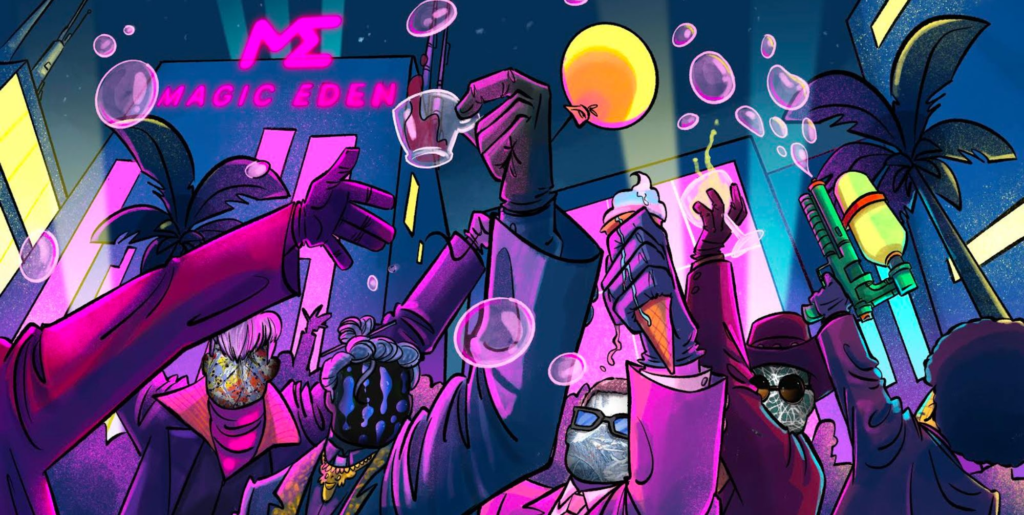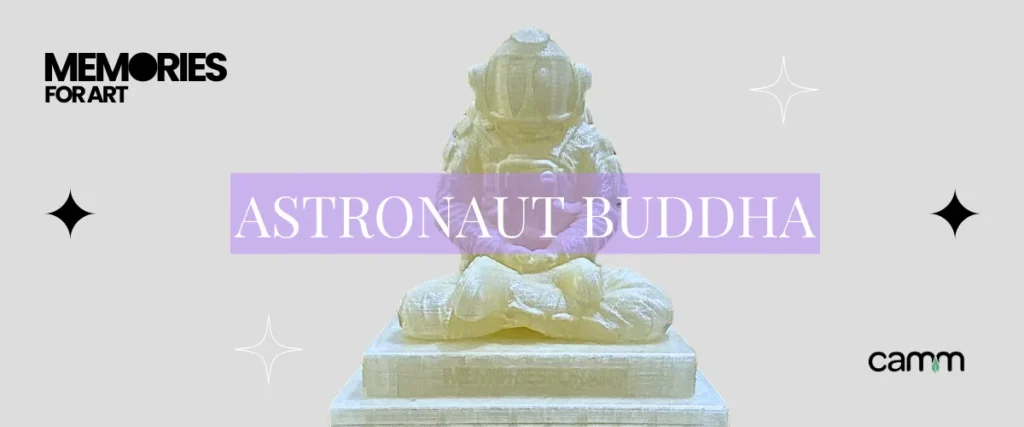Yuga Labs and Magic Eden are two prominent entities in the Ethereum ecosystem that have joined forces to launch an Ethereum marketplace with enforced royalties. Yuga Labs is a leading platform for creating and selling digital collectibles called NFTs (non-fungible tokens) on the Ethereum blockchain. They are best known for their famous collection of NFTs called Bored Ape Yacht Club, which has gained significant attention and value in the crypto art world.
By combining Yuga Labs’ strong presence in the NFT space and Magic Eden’s user-friendly marketplace, this collaboration has the potential to revolutionize the way digital art is bought and sold on the Ethereum blockchain. It provides a platform that supports artists’ rights and rewards them for their creativity while offering collectors a secure and trusted environment to discover and acquire unique NFTs.
Understanding Yuga Labs and Magic Eden
Yuga Labs and Magic Eden have established themselves as prominent NFT (Non-Fungible Token) community players. Magic Eden serves as a decentralized marketplace for NFTs on the Ethereum blockchain. Magic Eden provides a platform for creators and collectors to buy, sell, and trade NFTs securely and transparently.
Role of Magic Eden as a decentralized marketplace for NFTs on the Ethereum blockchain
As a decentralized marketplace, Magic Eden offers several advantages. Firstly, it eliminates the need for intermediaries, such as galleries or auction houses, which can often involve high fees and limitations on access. By leveraging blockchain technology, Magic Eden allows for direct peer-to-peer transactions, ensuring that creators receive fair compensation for their work and that collectors can access a wide range of NFTs.
How have Yuga Labs and Magic Eden gained popularity within the NFT community?
The popularity of Yuga Labs and Magic Eden can be attributed to several factors. Yuga Labs created the highly sought-after NFT collection, Bored Ape Yacht Club. This collection features unique and visually distinctive digital apes, which have gained significant traction and value within the NFT community.
The success of Bored Ape Yacht Club has not only propelled Yuga Labs to the forefront of the NFT space but has also drawn attention to Magic Eden as a primary marketplace for trading these valuable digital assets.
Furthermore, Magic Eden has gained popularity due to its commitment to supporting artists and creators. The platform prioritizes fair royalties, allowing creators to earn ongoing revenue from secondary sales of their NFTs. This feature has attracted many artists to list their work on Magic Eden, fostering a vibrant and diverse marketplace for collectors.
The Need for Enforced Royalties
Challenges faced by artists in the digital art space regarding the protection of their intellectual property
In digital art, artists and creators face unique challenges when protecting their intellectual property. With the ease of digital reproduction and distribution, preventing unauthorized use or infringement of their work can be difficult. Artists must contend with issues such as image theft, plagiarism, and unauthorized commercial use.
One of the main challenges artists face is the need to prove ownership and originality of their digital artworks. Unlike traditional physical paintings, which can be easily identified and authenticated, digital art can be easily copied, altered, and distributed without proper attribution or permission. It makes it challenging for artists to ensure they receive credit for their creations.
Another challenge is standardized copyright laws and regulations tailored to digital art. Existing copyright laws may need to adequately address the unique aspects of digital art, such as its reproducibility and the ease of manipulating and sharing digital files. It can make it harder for artists to enforce their rights and get legal remedies for infringement.
To address these challenges, artists can proactively protect their intellectual property. It includes watermarking their digital artworks, using metadata to embed copyright information, and registering their work with copyright offices or relevant organizations. Artists can also consider licensing their work through platforms that offer protection and enforcement services.
Importance of royalties in ensuring artists receive fair compensation for their work, even after it is sold or resold
The importance of royalties in ensuring fair compensation for artists cannot be overstated. Royalties provide a mechanism for ongoing income for artists even after their artwork is sold or resold. It is particularly relevant in digital art, where paintings can be easily reproduced and resold multiple times without the artist receiving additional compensation.
Implementing royalty systems through direct agreements with buyers or platforms that facilitate resale royalties can help artists receive fair compensation for their work.
The lack of a standardized system for enforcing royalties in the NFT market and how it affects artists’ income
The lack of a standardized system for enforcing royalties in the NFT market impacts artists’ income. Unlike traditional art sales, where artists get a percentage of the sale price when their project is resold, NFTs do not have a consistent mechanism for ensuring ongoing royalties. Artists may miss out on potential income as their results are bought and sold in the secondary market.
With a standardized system, artists can rely on individual agreements with buyers or platforms to receive royalties. It can be time-consuming and challenging, especially as NFT sales can happen across multiple platforms and marketplaces. Additionally, there is no guarantee that buyers will honour these agreements or that platforms will enforce them consistently.
The Collaboration and its Features
Specific features and mechanisms that Yuga Labs and Magic Eden are implementing to enforce royalties in their Ethereum marketplace
Yuga Labs and Magic Eden, two prominent players in the Ethereum marketplace, have implemented specific features and mechanisms to enforce royalties and benefit artists with a continuous income stream from secondary sales. These features aim to address the issue of artists not receiving compensation for their artwork when resold on the secondary market.
One of the critical mechanisms implemented by Yuga Labs is the use of smart contracts. Smart contracts are self-executing in terms of the agreement directly written into code. Yuga Labs utilizes smart contracts to automatically enforce royalties for artists on their platform.
When an artwork is sold, a percentage of the sale price is automatically transferred to the artist’s Ethereum wallet. It ensures that artists receive compensation every time their artwork is resold, providing them with a continuous income stream from secondary sales.
On the other hand, Magic Eden has implemented a feature called “Royalty Engine.” The Royalty Engine is a tool that allows artists to set and enforce royalties on their artwork. Artists can specify a percentage of the sale price they would like to receive as royalties, and the Royalty Engine ensures that this amount is automatically transferred to the artist’s wallet whenever their artwork is resold. This feature gives artists transparency and control over their royalties, giving them peace of mind and a reliable source of income from secondary sales.
How will these features benefit artists by providing them with a continuous income stream from secondary sales?
These features and mechanisms implemented by Yuga Labs and Magic Eden significantly benefit artists. Firstly, they ensure that artists receive compensation for their artwork even after the initial sale, creating a continuous income stream. It can be especially beneficial for emerging artists or those who rely on art sales as their primary source of income.
Additionally, these features provide artists with transparency and control over their royalties. Artists can easily track and verify the royalties they are owed, eliminating any uncertainty or disputes. This transparency builds trust between artists and the Ethereum marketplace, encouraging more artists to participate and share their artwork.
Innovative approaches or technologies are being utilized to ensure the effectiveness and transparency of the royalty enforcement system.
Blockchain technology has been applied to the music industry to create a secure platform for tracking and distributing royalties. With blockchain, every transaction and payment can be recorded securely and imminently, ensuring artists receive their fair share of royalties.
Another innovative approach is using artificial intelligence (AI) and machine learning algorithms. These technologies can analyze data to identify patterns and detect any potential infringement or unauthorized use of copyrighted works. By automating the process of monitoring and enforcing royalties, AI can help streamline the royalty enforcement system and ensure that artists are appropriately compensated for their work.
Additionally, data analytics tools have been employed to improve the effectiveness of royalty enforcement. These tools can analyze large datasets to identify discrepancies or inconsistencies in royalty payments. By leveraging data analytics, rights holders can more effectively track and manage their royalties, ensuring they receive fair compensation for their creative works.
Takeaway
Yuga Labs and Magic Eden have become influential entities within the NFT community. Magic Eden’s role as a decentralized marketplace for NFTs on the Ethereum blockchain offers an accessible and fair platform for creators and collectors alike. The popularity of Yuga Labs and Magic Eden can be attributed to their devotion to innovation, supporting artists, and providing a seamless and transparent experience for NFT transactions.







